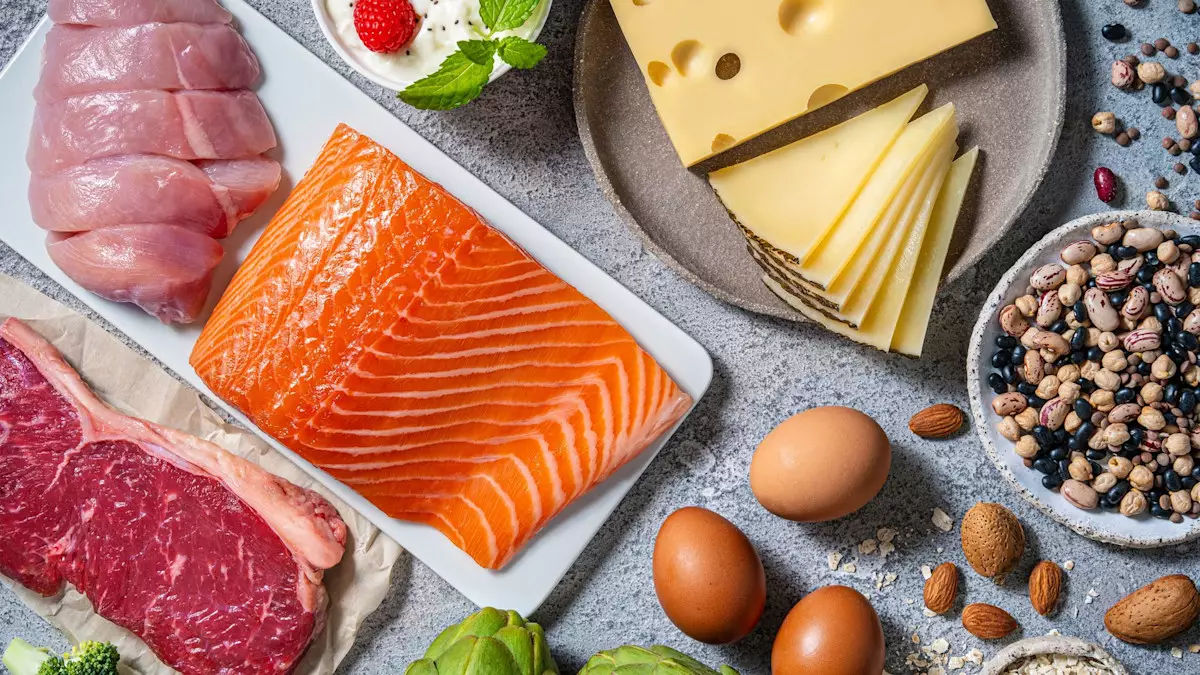Protein often sits center stage in conversations about fitness and athletic performance, yet its significance extends far beyond the gym walls. It’s not just an accessory for bodybuilders; it’s a cornerstone nutrient necessary for everyone—everyday individuals included. Protein is the foundation of our bodies, contributing to the structure of our hair, skin, and nails, while also playing a pivotal role in muscle development, hormonal balance, and immune system functionality. Unfortunately, many women, especially those navigating hectic lives and experimenting with diets, fall short of their protein needs.
If you’ve found yourself frequently fatigued, encountering cravings that seem to come from nowhere, or experiencing shifts in your mood and physical appearance, you might not realize that these could be linked to inadequate protein intake. The truth is that the signs can be insidious, creeping into our lives without much notice until they manifest in significant ways. Recognizing and understanding these signals is essential for cultivating a healthier, more energetic self.
Protein’s Role in Appetite Regulation
Have you ever polished off a meal only to be hungry shortly afterward? This could be your body’s method of signaling that it didn’t receive adequate protein. Protein is instrumental in appetite regulation; it triggers hormonal responses that promote feelings of fullness, allowing the body to establish balance after eating. When meals lack sufficient protein content, the natural response may be an incessant search for food, often tipping toward unhealthy snacks like sugary treats or processed carbohydrates, especially in the late afternoon when energy levels typically dip.
To counteract this vicious cycle, it’s essential to incorporate protein-rich foods into every meal. Options such as eggs, Greek yogurt, legumes, and lean meats can make substantial differences in your energy levels and cravings, buffering you against unending snack attacks fueled by hunger.
The Importance of Muscle Mass
It’s crucial to understand that muscle isn’t merely about vanity; its maintenance is vital for metabolic health, balance, and day-to-day functionality. When protein intake is insufficient, the body may resort to degrading muscle tissue to meet its energy needs, especially during weight loss. This scenario can lead to reductions in muscle tone and stamina over time, impacting mobility and overall health.
For women over the age of 40, the preservation of muscle mass becomes even more critical, serving as a safeguard against injury and aiding in long-term wellness. Regular strength training, complemented by an adequate protein intake, fortifies lean muscle tissue and promotes a spirited lifestyle, highlighting the importance of protein in a proactive health strategy.
Aesthetic Indicators of Protein Deficiency
The condition of your hair, skin, and nails can serve as a window into your body’s nutritional status. Deficiencies in protein often reveal themselves as thinning hair, dull skin, or brittle nails, which are indicators of a nutrition gap rather than signs of merely aging or stress. Protein is essential for synthesizing structures like keratin and collagen—compounds that keep our beauty intact. When these are deprived of the necessary nutrients, visible changes can occur, and addressing these with dietary adjustments can reverse the signs more effectively than many cosmetic solutions.
Beyond Appearance: The Impact on Energy and Immunity
Fatigue can often be a silent saboteur of productivity. If you find yourself perpetually tired despite apparent rest, your diet might be to blame. Protein not only stabilizes blood sugar but also assists in the effective transport of oxygen within the body. Without it, feelings of sluggishness and mental fog can become the norm. Swapping a low-protein breakfast for something like a smoothie with added protein or having eggs can reinvigorate your mornings and afternoon focus.
Moreover, protein plays a foundational role in sustaining a robust immune system. It assists in the creation of antibodies and immune cells, your body’s frontline defense against illness. Should you notice delays in recovery from common colds or injuries, it might be an indication that a protein boost could bolster your immune response and speed up healing.
Listening to Your Body: The Signals Matter
Your body often whispers hints about what it needs; occasionally, you just have to pay attention. If you’re dreaming about a steak while biting into a salad or suddenly craven cheese, it might signal a craving for protein. While cravings themselves shouldn’t be the sole indicators, they can provide insightful information alongside other symptoms. Observing these messages can allow for dietary adjustments—there’s a wealth of high-quality protein options available to integrate into your daily meals.
To optimize your protein intake, consider the guideline of around 0.8 grams of protein per kilogram of body weight. However, many women would thrive on more, particularly if active, pregnant, or aging past forty. Aiming for 20 to 30 grams of protein per meal, sourced from diverse options such as fish, beans, tofu, or cottage cheese, ensures a well-rounded and fulfilling diet.
Tracing the intricate relationship between protein and overall wellness illuminates its staggering importance, far beyond just a number on a nutrition label. It’s time to attune to your body and recognize that every meal holds the potential to catalyze health and vitality through adequate protein consumption.

